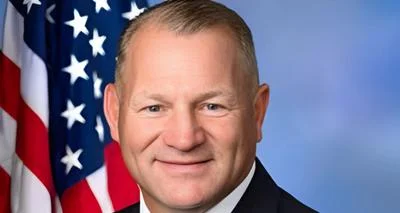Thank you Mr. Chairman. I want to welcome Dr. Collins, as well as Dr. Lowy, Dr. Fauci, Dr. Gordon, Dr. Gibbons, and Dr. Volkow-thank you all for being here this morning to discuss the future of the National Institutes of Health.
The NIH is the leading biomedical research entity in the world. My colleagues on the subcommittee have often heard me say that medical research is special. A breakthrough at NIH saves not just one life, but potentially millions, over generations to come. That breakthrough can improve the life of not just a sick individual, but the lives of their loved ones, caretakers, and friends. That is what NIH represents.
Funding this research has the power to do more good for more people than almost anything else within the purview of government. As a survivor of ovarian cancer, I know that I am alive today because of the grace of God and biomedical research.
I want to thank Chairman Cole - and all of the members of the subcommittee - for their bipartisan work to make NIH research a priority over the past two years. Over the last two years, we have boosted NIH funding by $4 billion, an increase of 13.3 percent, and begun reversing the erosion of NIH’s budget. The American people are going to derive the benefit of that investment for generations to come.
Unfortunately, the budget released by President Trump in March would decimate that progress. President Trump proposed to cut the NIH by approximately $8 billion-a foolish and (quite frankly) immoral idea that would slash the world’s preeminent research institution by one-fourth.
President Trump’s shortsighted proposal would reduce the NIH’s purchasing power to a level not seen since the 1990s-sabotaging research in critical areas such as Alzheimer’s disease, cancer, HIV/AIDS, antibiotic resistance, precision medicine, and countless other fields.
This is not just theoretical-when we face a public health emergency, NIH research is often our best tool to avoid tragic loss of life. Take Ebola. Just Friday, the World Health Organization declared an outbreak in the Democratic Republic of the Congo, which is why the work that NIH is doing to develop a vaccine remains critically important not just for public health, but for global security.
Last week, one of my committee staff members visited Puerto Rico to meet with the Principle Investigator of a Phase II clinical trial of a Zika vaccine candidate. The vaccine candidate was developed by NIH and preliminary results are very promising. Those are NIH dollars at work.
In FY 2016, the NIH funded 35,840 research grants. In 2017, under the Omnibus we passed two weeks ago, the NIH should be able to fund an additional 1,500 research grants. This is the direction we need to be moving.
Instead, a cut of $8 billion, like the Administration has proposed, could eliminate approximately 5,000-8,000 grants. In my home state of Connecticut, a cut to NIH of this magnitude could result in the state losing over $100 million, or over 250 grants.
Sixteen years ago, NIH funded about one-in-three meritorious research proposals-but today, that rate has fallen to about one-in-five, a slight improvement over recent years but still low by historical standards. If President Trump’s budget was enacted, the success rate would fall to an all-time low - leading to missed opportunities to develop cures and treatments for life-altering diseases affecting far too many people. Those unfunded grants would translate to medical discoveries not being made-lives not being saved.
Medical research, and scientific innovation, is an example of what makes America great. And yet, President Trump is proposing to hamstring our progress as a nation.
President Trump is dead wrong. Even without this proposed cut, NIH’s budget has declined by nearly $6.5 billion since 2003, when adjusted for inflation. While NIH is now funded at an all-time high of $34.1 billion thanks to the $4 billion of increases over the last two years, funding has not kept pace with the rising cost of biomedical research. We should be debating an increase of $8 billion - not a cut of $8 billion.
Let me be clear: President Trump’s NIH proposal is dead on arrival. We will reject this shortsighted proposal on a bipartisan basis and continue to build on the progress we have made the last two years.
To our panelists-thank you for your dedication to saving lives and improving our quality of life. We owe you a debt of gratitude.
Thank you. I look forward to your testimony.
Source: U.S. Department of HCA







